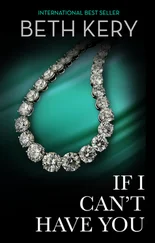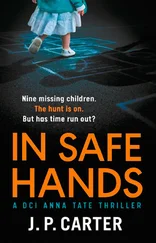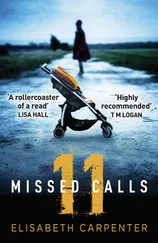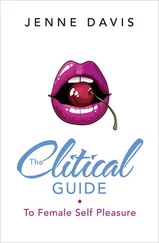I tore open the cardboard casing. Hundreds of them looking up at me like dull black eyes. My stomach leapt up as if it were trying to escape through my mouth.
It’s no different from eating a piece of fruit or a chicken nugget, I told myself. But it was. Now that I knew, the Kakes all tasted of petroleum and soil, vitamin and dirt. I knew that I was eating the food of the dead — mineral, chemical, synthetic. I was no longer a member of the food chain. I was part of something else.
Chris popped up in front of me.
“This is great!” he said. “You’ve really made a full recovery. I think there’s a color in your cheek. You’ll be back to normal in no time! And I’ll take you back to the compound, and we’ll see each other again, every day.”
I felt my stomach buckling already, telling me it was full. You weakling, I told it. You will take this, I said to my body, and you will take whatever comes next, and when you’re brimming over you will pack it down to make more room for more. You will pull the food from these objects and build it into me, remake me in edible plastic, turn me fake, too. It was hard to swallow, and I couldn’t breathe through my mouth anymore: the bitter orange seepage had formed a slick like flypaper at the back of my throat, a sticky cling that grabbed at the things I tried to push past. I closed my eyes and thought about the Kake. I felt for it with my body. I tried to seek out and zoom in on the living portion of it, the caloried portion. The part that had once been hacked off from a plant, then ground, powdered, processed, refined, enriched, and mixed in with all the other crap.
I concentrated on the biting and chewing. My body didn’t want to: it felt like the food was filling me over, pushing against the backs of my eyeballs. What occurred to me then as I crouched on the warehouse floor, my mouth full, was that living wasn’t a matter of right or wrong or ethics or self-expression. There was no better way to live, or worse. It was all terrible, and you had to do it constantly. I bore down, I tore in. I held my fingers over my mouth to steady the lips and keep the food from reversing. I held the image of the shark in my mind, tearing tearing tearing at the body of a seal.
Chris was talking at me still, spinning out optimistic Eater fantasies of what life would be like for us back in the cult. I stuffed another Kake into my mouth from the case. I was chewing less and less each time, trying to channel the shark. Between chewings I could hear him saying: You’ll come home with us in the white van, maybe we’ll sit next to each other so I can make sure nobody messes with you. Then the next day we’ll see each other in the corridor, and maybe you’ll speak to me. Or not, if you don’t feel like it, no pressure. But we’ll still have this, this stuff we had today. We can be people together, in secret, pretending that we’re not. We can be people, secretly, until we become ghosts.
He reminded me of someone. As I thought on it, I realized that someone was me — the past me, telling C all about how great our lives would be if we moved in together or took a trip to Puerto Rico. I didn’t want to ruin Chris’s vision of the future. You needed a vision of the future in order to get anywhere; you couldn’t live life thinking you were always about to fall off a cliff. I didn’t want to tell him that I would never go back with him to the Church: I would be going forward, forward by way of getting back to the kind of life I used to have, only this time I’d live it better. I didn’t want to take his imagined situation away just so that he could know something more accurate about his actual situation. Because what I was thinking now, what had come to me like an entirely new thought, was that I could use him. I could make use of him, as normal people made use of other normal people — for love, for sex, for someone to care about your thoughts. He wasn’t the person I had dreamed of being with, but maybe that person could be built from the raw material he contained. I had already tried to escape, to avoid, to negate myself. Now I was ready to try living.
I put a half-eaten Kake down on the concrete beside me.
“Hey, Chris,” I said. “Come here.”
Chris trotted over, helpful as ever. A good employee.
“Do you need help?” he asked, his pink face making a friendly shape.
“No,” I said. “I just need to talk to you.”
I stood up. I put my hand on his shoulder and looked up into his eyes.
“Listen, Chris,” I said. “Do you love me?”
He looked hopeful and confused.
“Or,” I said, “do you think you could?”
“Well,” Chris said thoughtfully, “I think definitely. If you wanted me to.”
“Okay,” I said. “That’s good. Do you want to come with me?”
“Sure,” he said, “can do. Where are we going?”
“Someplace nice,” I said. “Normal. We can live in a house with a roof and a kitchen, surrounded by neighborhood. We’ll both get jobs. We’ll never talk about them. We’ll watch TV together, things like that. Okay?”
He looked puzzled again. “Okay,” he replied.
“I’ll call you C,” I said. “For short.”
“Okay,” he said, rubbing his face slowly with the palm of his hand.
I knew he didn’t understand what would be happening to him, but he’d come along anyhow.
“It’ll be wonderful,” I assured him. “You’ll like it.”
This seemed to put him at ease. He smiled at me, a pure and friendly smile, and walked off to continue his pacing.
I picked up my half-eaten Kake, and to my surprise, my mouth watered. I stuffed the half Kake into my slavering center. Over by the door, Chris walked around, wiggling his arms in optimistic motions and talking on about what our life would be like once we got back to the Eaters. He was so far away now, or maybe he just looked distant because we were imagining different things for our future. Standing small there among the boxes of Kandy Kakes that rose like brownish cartoon cliffs around him, he resembled the videos I’d seen of sea lions floating angelically among the kelp, black bodies filmed from below, their shapes cut out in bright sunlight, bodies mistakable for those of a human being. I felt the memory of a shadowy arm around me, a watcher again, sitting there on the couch with my boyfriend, watching the animals become prey. Somewhere there were giant whales feeding on creatures too small to see, pressing them against fronds of baleen with a tongue the size of a sedan. There were polar bears killing seals, tearing ovoid chunks from out of their smooth, round bellies. In the surrounding vastness of the warehouse, I heard something scratching against the concrete floor and knew there were rats here, scraping a thin film of nutrient from the dry packaged matter that surrounded them. Life was everywhere, inescapable, imperative.
ALL MY THANKS TOClaudia Ballard, Barry Harbaugh, and Cal Morgan for their insight and faith, and to everyone at William Morris and HarperCollins who helped to make this book a reality. I am grateful to the Virginia Center for the Creative Arts, the Santa Fe Art Institute, ArtFarm Nebraska, and the hardworking staff of the Bread Loaf Writers’ Conference for giving me community, support, and the gift of time.
Thanks also to Heidi Julavits, Ben Marcus, and Sam Lipsyte at Columbia for encouraging me to write what I could not yet write, and to early readers JW McCormack, Shayne Barr, Kimberly Wang, and Kathleen Alcott, who each embody a way of seeing that I wish I could make my own. To my parents for loving me and teaching me. And to Alex Gilvarry, a fantastic person to love.
Читать дальше
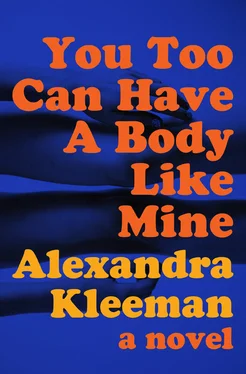

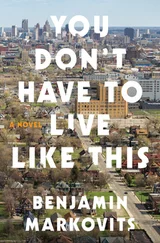
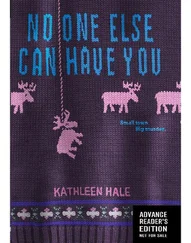
![Ally Carter - [Gallagher Girls 01] I'd Tell You I Love You But Then I'd Have to Kill You](/books/262179/ally-carter-gallagher-girls-01-i-d-tell-you-i-lo-thumb.webp)

